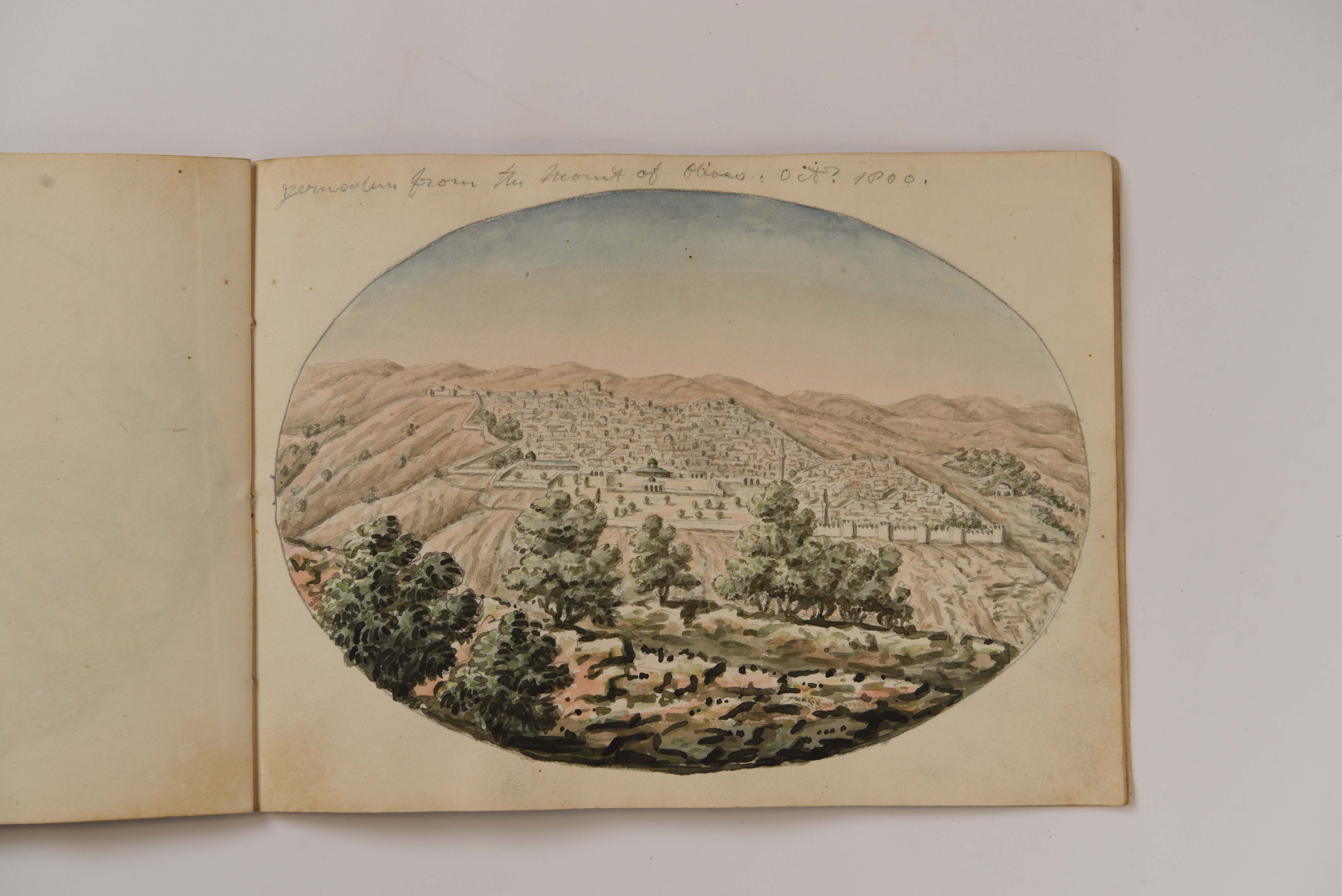Colonel William Martin Leake (1777-1860), a career soldier in the Royal Artillery during the Napoleonic Wars, was an expert topographer and an enthusiastic antiquarian. Leake first landed in the eastern Mediterranean in 1799, part of a British expeditionary force sent to Istanbul to train the Sultan’s troops against their mutual French foe. Leake’s commanding officer, George Koehler (1758-1800), sketched scenic vistas during this period on the shores of the Bosporus, and later in the Holy Land (where he and his wife Anne would perish from plague in 1800). Leake continued to travel across Ottoman Greece during 1804-1810 as reconnaissance scout, spy and diplomatic liaison, accompanied by a mule train burdened with theodolite, camp bed and reference library. Throughout, he journalled upon his encounters with contemporary customs, ancient ruins and Classical epigraphy.
Leake published these travel diaries, and an extensive Hellenic coin collection, during a long and scholarly retirement that began in 1823. His acquisitions of ancient coins, vases and gems appears to have been undertaken throughout this period, not while on active service in the Balkans. He bequeathed the right to purchase his numismatic and antiquities assemblages for £5,000, upon his wife’s death, to the Fitzwilliam Museum. This proved to be an expensive and controversial undertaking when Mrs Elizabeth Leake expired in 1863. Thereby, the Museum achieved its first major purchase but simultaneously nearly put the lights out and scuppered building extension plans for a decade. Leake’s Papers are now on permanent loan to the Museum of Classical Archaeology, while the Faculty Archives provide practical daily oversight.
So far, so well known. However, Leake’s first extant notebook, entitled Cerigo - England 1802, 3, remains unpublished. Its modest binding, parchment cover pocked with the scars of fly-strike, speaks of the challenges of sheep rearing prior to the invention of sheep dip in 1830. Its size is perfect for stowing in the pocket of a Regency man’s coat skirts. Within, fresh from victory over the French in Egypt during 1801, Leake’s jottings in ink commence at Alexandria on 5th April 1802. He was on board Lord Elgin’s brig, the Mentor, which hugged the Levantine coast travelling north-east.
Leake’s notes are the abbreviated dash of the neophyte Classicist too dizzy with experiencing landscapes both novel yet oddly familiar from antiquity, to bother with recording observations in detail. He darts from Baalbek (ancient Heliopolis) to Damascus (cold and windy), to Homs (its massive Citadel as yet thirty years from demolition), Hama (‘no castle’ but ‘giant water wheels’), Aleppo (olives, pistachios and gardens) then on to Iskenderun (plague in the plains) and rejoins the Mentor, to dock at Piraeus on June 25th. For a full appreciation of their itinerary one must read the memoirs of Leake’s companion, Lieutenant John Squire (1780-1812). (The trio was completed by the diplomat William R. Hamilton (1777-1859), then private secretary to Lord Elgin.) Their journey overland in Greece concludes in the Argolid at Mycenae, where the Lion Gate is indicated by excitable squiggles.
Leake then parsimoniously flipped the book and started writing in pencil at the back, recording his sojourn in Cerigo (Kithyra/Κύθηρα) in September 1802. He was due to accompany the Mentor, carrying some of Lord Elgin’s shipment of the Parthenon marbles, to Malta. Except that the brig sank just out of the port of Avlemonas, taking with it Leake’s theodolite and all his papers but for this one notebook, which probably survived because it was in his pocket. Adopting a much more discursive style, he records everything that transpires around him. He observed the docking of a vessel which had been boarded by fierce Maniote pirates who had made off with ‘money, clothes and of [sic] 150 barrels of Cyprus wine’. The pirates were discerning connoisseurs and left alone the larger part of the cargo which was ‘ale wine’ (barley wine?).
This notebook will be digitally photographed, thanks to a legacy gift from the family of Professor Joyce M. Reynolds (1918-2022), who as an intrepid epigrapher could count Leake in her professional lineage. It joins other documents on the Faculty of Classics’ site within the Cambridge Digital Library. To gain maximum knowledge and enjoyment from the text, each page needs to be transcribed. The optimum way to achieve this is still via human dedication, not the fickle attentions of scanning software. If any alumni wish to volunteer to transcribe a few pages each of Leake’s very legible late-eighteenth century hand, please contact the Archivist (archives@classics.co.uk). Collectively, we can unlock this notebook’s unexcavated treasures.
Images: a Koehler sketch of baggage mules, Koehler watercolour of Jerusalem in 1800, front and back cover of the notebook, possibly also Koehler watercolour of the Tomb of Achilles.
Dr Rebecca Naylor



